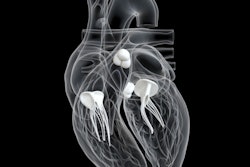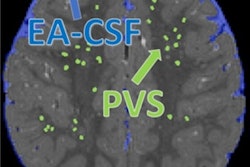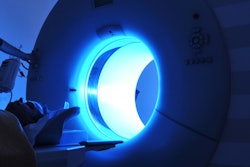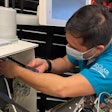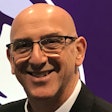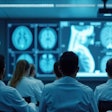When the radiology department at Cork University Hospital in the south coast of Ireland took the lead in developing an autism-friendly patient experience, they observed that it took less time to complete imaging studies for children with autism, according to a February 28 session at ECR 2024.
Too much noise, too much pain, and too much information thrown at them summarize what children with autism can feel in the hospital, explained Martin Peyton, a clinical specialist and radiographer, who presented his hospital's quality initiative.
"When the child is overstimulated, they are unwilling to assist in the short term. Their distrust in healthcare providers can make interactions with the child very problematic, more stressful for the child and on the parents as well. Every interaction equals pain," Peyton said, especially with orthopedics because they have to find where the pain is.
However, with the assistance of an autism advocate society called As I Am, the Cork University team was able to modify the patient experience toward their goal of becoming Ireland's first "autism-friendly hospital." Among the steps they took were the following:
- Sharing stories online.
- Creating quiet rooms for patients that were in contrast to rooms where children might normally wait.
- Repainting rooms in autism-friendly colors, generally beige.
- Developing a YouTube channel with realistic walkthrough videos of what children can expect along their patient journey.
- Training staff to be forgiving and empathetic, doctors were more aware too.
- Implementing sign language (in this case, Lamh).
- Incorporating an engaging piece of artwork (in this case, an artist's six-foot Marvel-esque Spiderman).
- Enlisting companion therapy dogs (radiology and outpatient departments, and radiotherapy).
- Enlisting patient advocates to accompany the child.
- Maintaining scheduling flexibility for when "the time is right."
Paramount, Peyton said, is enlisting advocates for autistic children to assist in-person early in the admissions process. "That's the person who's advocating for you all the way through," he added.
Staff members who had their own personal experiences shared ideas as well, such as getting local canine companions from an autism therapy service involved. A trial was set up for autism therapy dogs to be onsite three times a week and coordinated for when providers knew a child with autism or special needs would be coming into the pediatric outpatient department.
"Keeping the patient perspective first and foremost, if you can't appreciate where the patient is failing, you're going to have difficulty trying to understand how you need to treat the patient well," Peyton said. "We made departmental changes to assist in improving the experience." That meant looking out for autistic children so that they would wait away from rowdy patients, for example. Doctors became more empathetic too as a result of the focus.
Radiology, though, with its noisy and strange-seeming equipment -- the environment is a big issue and the communication elements are massive, Peyton said.
"When the patient presents to the outpatient department, they get an immediate referral to radiology. An advocate is identified for them and from that point on the advocate will drive their care," in communication with parents, Peyton said. "They're put to the front of the queue, and we try to maintain that they get a 20-minute slot. This is to give as much time and to create as calm an atmosphere as we can for the patient when we bring them in. Sensory items are available (toys, fidget spinners, weighted blankets) and then the ace in the hole for us is that the companion dog will be on-site."
Peyton added that a therapy dog will escort the child into the x-ray room and immediately return after the x-ray. "We have found this to be a very, very positive outcome."
Overall, Peyton said the radiology department's quality initiative produced positive outcomes, including less anxiety by the children, trust gained in healthcare professionals, and shorter department visits and imaging times, among others. Radiology is even on-call at times when a parent believes their child "is ready" for their examination, and it may be 10 p.m., Peyton said.
For more coverage from ECR 2024, please visit our RADCast.





